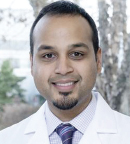A number of patients involved in clinical trials for drugs being developed to treat cancer may be malnourished and sedentary, a factor that may result in inaccurate results for the trials, according to a new study from researchers at Fox Chase Cancer Center published in The Oncologist.1

Rishi Jain, MD, MS, DABOM
“We found that patients who were malnourished had higher rates of side effects from therapy, hospitalizations, lower response rates, and a shortened survival. While we suspected that patients with malnutrition may have worse outcomes, the magnitude of this effect was alarming,” said lead author Rishi Jain, MD, MS, DABOM, Assistant Professor in the Department of Hematology/Oncology at Fox Chase Cancer Center in Philadelphia.
Study Details
The researchers sought to understand the relationships between baseline nutrition and exercise status, with trial endpoints such as toxicity and survival. Baseline assessments of nutrition and exercise status were conducted in patients prior to initiation of phase I and II oncology clinical trials. A total of 100 patients were recruited, 87 of whom were beginning a phase I trial. A total of 60% were beginning trials studying immunotherapeutic agents.
“We found that 39% of patients enrolling in a phase I or II clinical trial were severely malnourished at the time of study initiation. We also found that 52% of patients were sedentary, with minimal physical activity,” Dr. Jain said. “There was around a twofold increased risk of hospitalizations and severe side effects in those who were malnourished. Also, patients who were malnourished were only able to stay on the clinical trial for half as long.”
Dr. Jain added that the findings contribute to the growing literature showing that compromised nutritional status and physical performance negatively affect cancer care and outcomes. Given how important phase I and II clinical trials are to the identification of future cancer therapies, there is an urgent need to understand the specific reasons why malnutrition may interfere with the effectiveness of these novel treatments, including immuno-therapies, Dr. Jain said. ■
DISCLOSURE: For full disclosures of the study authors, visit theoncologist.alphamedpress.org.
REFERENCE

